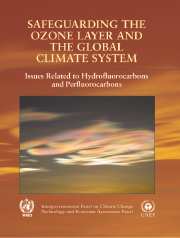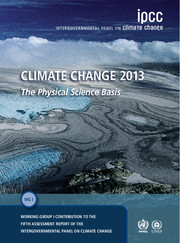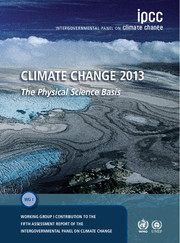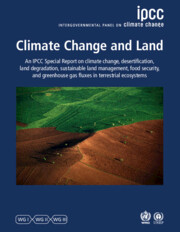Safeguarding the Ozone Layer and the Global Climate System
Scientific evidence linking chlorofluorocarbons and other ozone-depleting substances to global ozone depletion led to the initial control of chemicals under the 1987 Montreal Protocol. Since then it has been realized that some actions taken to reduce future depletion of the ozone layer could also influence global warming. When the Kyoto Protocol was negotiated in 1997, countries had new incentives to take account of how choices among substitutes could affect the objectives of both Protocols. This report provides the scientific context required for consideration of these choices; potential methodologies for assessing options; and technical issues relating to greenhouse gas emission reduction opportunities for each of the sectors involved, including refrigeration, air conditioning, foams, aerosols, fire protection and solvents. This IPCC/TEAP Special Report provides invaluable information for researchers in environmental science, climatology, and atmospheric chemistry, policy-makers in governments and environmental organizations, and scientists and engineers in industry.
- Comprehensive and definitive IPCC report on ozone and climate
- Chapters written by international experts
- Contains Summary for Policymakers and Technical Summary
Product details
February 2006Hardback
9780521863360
486 pages
287 × 224 × 24 mm
1.358kg
Temporarily unavailable - available from TBC
Table of Contents
- Foreword
- Preface
- Summary for policymakers
- Technical summary
- 1. Ozone and climate: a review of interconnections
- 2. Chemical and radiative effects of halocarbons and their replacement compounds
- 3. Methodologies
- 4. Refrigeration
- 5. Residential and commercial air conditioning and heating
- 6. Mobile air conditioning
- 7. Foams
- 8. Medical aerosols
- 9. Fire protection
- 10. Non-medical aerosols, solvents, and HFC-23
- 11. HFCs and PFCs: current and future supply, demand and emissions, plus emissions of CFCs, HCFCs and Halons
- Annex 1. Authors and Reviewers
- Annex 2. Glossary
- Annex 3. Acronyms and abbreviations
- Annex 4. Units
- Annex 5. Major chemical formulae and nomenclature
- Annex 6. List of major IPCC Reports.







